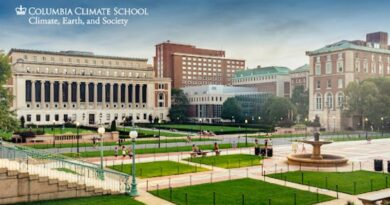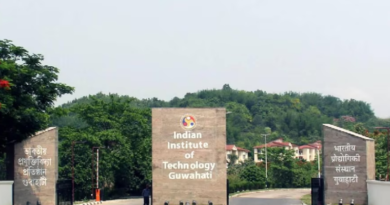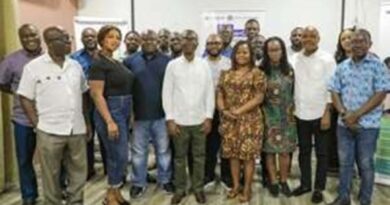Western Sydney University tops global sustainability impact ranking for groundbreaking third year
Western Sydney University has been named number one in the world in the Times Higher Education (THE) University Impact Rankings (opens in new window) released today, topping the world’s leading university sustainability ranking for an unprecedented three years in a row.
Western Sydney University placed first overall in Australia and internationally for its social, economic and environmental impact in the prestigious annual rankings, competing against more than 1,900 higher education institutions from 125 countries.
This follows the University’s number one results in the 2022 and 2023 THE University Impact Rankings – the first time any University in the world has achieved such a triple feat.
The Times Higher Education University Impact Rankings is the main global ranking system that comprehensively assesses universities on their commitment to the United Nations’ 17 Sustainable Development Goals (SDGs). Rankings are based on universities’ teaching, research, outreach and stewardship.
As well as the overall world number one ranking, the University was recognised in the following SDG categories:
- 1st in the world for SDG 5 Gender Equality
- 3rd in the world for SDG 15 Life on Land
- 4th in the world for SDG 13 Climate Action, SDG 12 Responsible Consumption and Production, and SDG 17 Partnerships for the Goals
- 8th in the world for SDG 10 Reduced Inequalities
- 9th in the world for SDG 6 Clean Water and Sanitation
Interim Vice-Chancellor and President, Professor Clare Pollock, said Western Sydney University is immensely proud of the exceptional result and warmly congratulated everyone across the University community on the achievement.
“Delivering positive and meaningful community impact sits at the heart of everything we do at Western Sydney University. For 35 years it has been core to our mission, inspiring and motivating us to improve people’s lives and to be a force for change,” said Professor Pollock.
“It is a remarkable and defining moment for an Australian university to be recognised as number one in the world in such a highly competitive global rankings system for three years in a row.
“It is testament to the dedication of all our staff, students, researchers and partners who have worked hard over many years to make a positive difference. I congratulate everyone across our University on this stellar achievement, which reflects highly on the positive impact that the Australian university sector delivers for our communities more broadly.”
rofessor Pollock said the University’s teaching, research and international partnerships are fully aligned to the UN’s Sustainable Development Goals 2030 (SDGs), which are embedded across all the University’s operations.
“For Western Sydney University, the Sustainable Development Goals are more than aspirational – they underpin our strategic direction, institutional values and organisational culture,” said Professor Pollock.
“The SDGs are the driving force behind our action plans and can be seen right across our teaching, research, campus operations and engagement, inspiring collaborations between students, staff and our community partners to tackle complex challenges such as climate transitions and social justice.
“This means being at the forefront of local and global issues and co-creating practical, and sustainable solutions, whether it be shaping our teaching to develop the next generation of highly-engaged thought leaders and citizen scholars, or being an anchor institution that is driving social and economic transformation under way in our own Western Sydney region.”
Professor Pollock said it was particularly pleasing that for the second year in a row the University has achieved a global ranking of first in the world for progress on Gender Equality. Western Sydney University has a long history of championing efforts to increase the representation of women in leadership roles, reducing the gender pay gap and promoting workplace flexibility.
The University’s Decadal Strategy Sustainability and Resilience 2030 showcases more than 50 long term actions that put policies into practice with the University on track to meet its completion targets by 2030.
“The Strategy’s digital engagement platform also provides a great way for our communities to partner with us to actively participate and co-design solutions on our environmental stewardship and ongoing sustainability efforts,” said Professor Pollock.
“For example, here in Western Sydney our research projects are tackling issues such as urban heat, housing sustainability and affordability, and climate resilience that are facing our region.
“On the global stage, our world-leading education and transformative research programs and collaborative international partnerships are delivering practical solutions to challenges like gender equality, reducing inequalities and, food and water security.”
Professor Pollock said the University has implemented many practical measures to reduce its carbon footprint across its Australian campuses including all electricity being 100 per cent GreenPower accredited, rolling out a network of electric vehicle charging stations, and utilising innovative waste management practices to divert 89 per cent of campus waste away from landfill.
“We have achieved our ambitious target to be Climate Active certified as carbon neutral for our business operations by 2023 and we are well on our way to being certified climate positive by 2029,” Professor Pollock said.
“Most importantly, our learning and teaching initiatives like our Sustainability Graduate Attribute are preparing our future graduates with capabilities to contribute to a more sustainable, diverse and socially-just world.
“As a university, it is vital we encourage and equip our future leaders with critical-thinking and problem-solving skills so they too can carry on the work of our communities and be a force for positive change and social good.”




